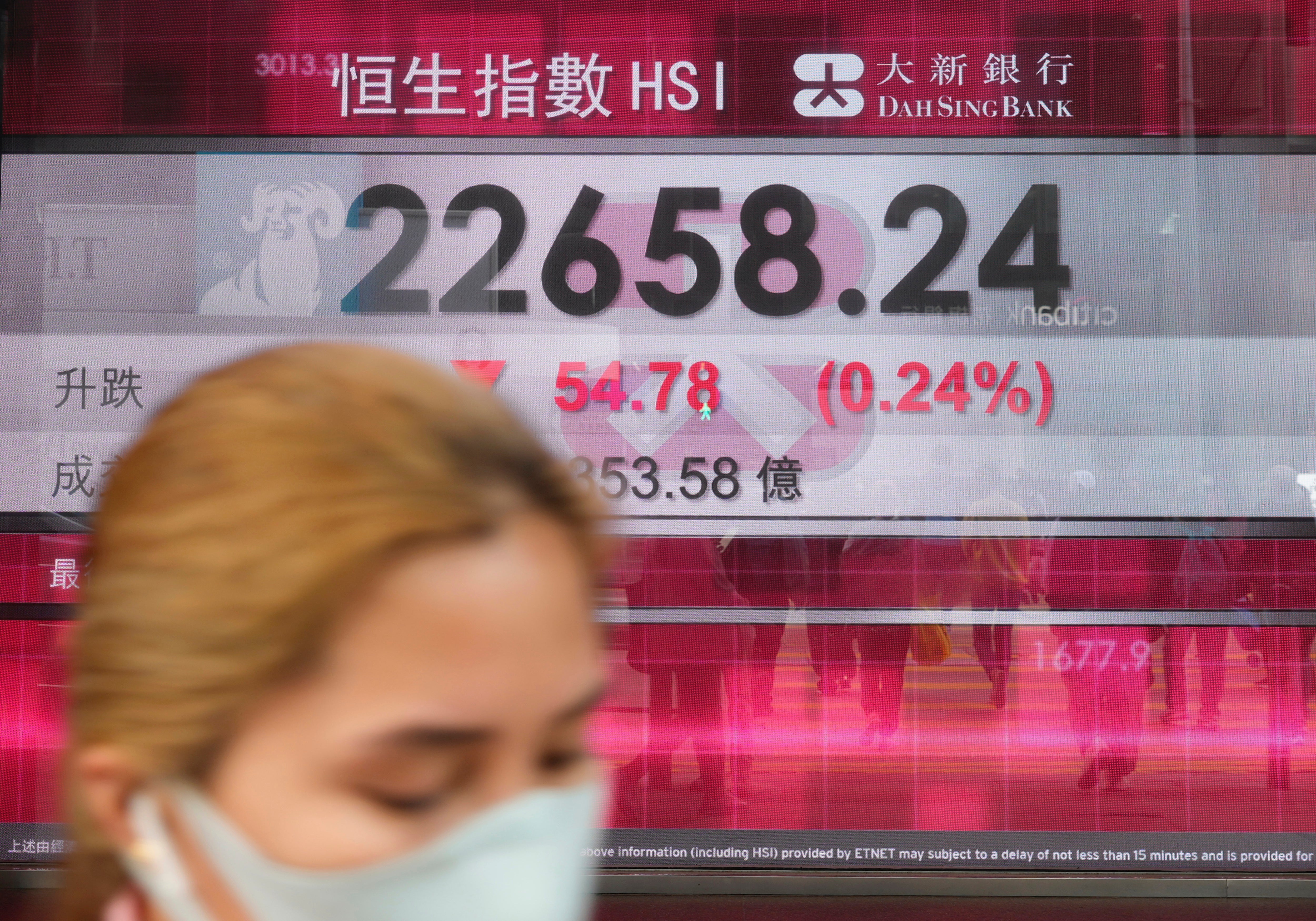Asian shares climb amid Russia-Ukraine talks, oil worries
Asian shares have mostly gained as investors eye talks between Ukraine and Russia aimed at trying to end the war

Asian shares mostly rose Tuesday as global investors eyed talks aimed at ending the Russian military assault on Ukraine, which so far have yielded just an agreement to keep talking.
Benchmarks were higher in early trading in Tokyo, Sydney and Shanghai. Hong Kong declined and markets were closed in South Korea for a holiday. U.S. futures edged lower and oil prices rose.
Surging oil prices and increasing financial pressure from the U.S. and allies on Russia, one of the world's largest energy exporters, for its invasion of Ukraine are adding to uncertainty about the global economic outlook.
Russian forces shelled Ukraine’s second-largest city on Monday, rocking a residential neighborhood, and closed in on the capital, Kyiv, in a 40-mile convoy of hundreds of tanks and other vehicles.
“The end game continues to elude. While the ceasefire talks at the Belarus-Ukraine border ended, the military fires certainly have not ended by any means alongside sanctions being raised further,” Tan Boon Heng at Mizuho Bank in Singapore said in a commentary.
Japan's benchmark Nikkei 225 gained 1.4% in afternoon trading to 26,893.98. Australia's S&P/ASX 200 surged 0.7% to 7,096.50. Hong Kong's Hang Seng slipped 0.4% to 22,628.17, while the Shanghai Composite added 0.2% to 3,469.90. Trading was closed in South Korea for a national holiday.
“Asian equities were higher on Tuesday mirroring a mild rebound on Wall Street and following talks between Russia and Ukraine. The market’s focus will continue to be on geopolitical tensions, at least in the short term,” Anderson Alves of ActivTrades said in a report.
The value of the Russian ruble plunged to a record low after Western countries moved to block some Russian banks from a key global payments system. On Monday, the U.S. Treasury Department announced more sanctions against Russia's central bank.
Governors and lawmakers in numerous U.S. states, seeking to add to the financial squeeze on Russia, were taking steps to pull state pension and treasury funds out of investments in Russian-held entities or Russian companies supporting the war.
Early Tuesday, the ruble was down 3.2% at 104.51 to the dollar. The Moscow Stock Exchange was closed.
Ordinary Russians facing likely higher prices and crimped foreign travel due to Western sanctions lined up at banks and ATMs on Monday. Deeper economic turmoil may loom if price shocks and supply-chain issues cause Russian factories to shut down due to lower demand.
On Wall Street, the S&P 500 fell as much as 1.6% Monday and then recouped much of that to finish 0.2% lower at 4,373.94. The Dow Jones Industrial Average fell 0.5% to 33,892.60 and the Nasdaq composite rose 0.4% to 13,751.40, recovering from a 1.1% slide.
The Russell 2000 index of small company stocks gained 0.4% to 2,048.09.
The Biden administration said Germany, France, the UK, Italy, Japan, European Union and others will join the U.S. in hitting Russia’s central bank.
Markets already were on edge before Russia’s invasion, worried about upcoming hikes in interest rates by the Federal Reserve, which would be the first since 2018.
The war in Ukraine is raising expectations that the Federal Reserve may have to adopt a gentler approach to raising interest rates in order to fight inflation.
Seeking safer returns, investors have plowed into U.S. government bonds. The yield of the 10-year Treasury fell 0.15 percentage points to 1.83%, its biggest drop since the omicron coronavirus variant first rattled investors. Gold rose 0.7%.
Fed Chair Jerome Powell is to testify before Congress later this week and could offer clues on the path ahead. A report on Friday will also show whether strength in the U.S. jobs market continued in February, allowing the Fed more leeway to raise rates.
The Fed is treading a tightrope, needing to raise rates enough to curb inflation but not by so much as to choke the economy into a recession. Higher rates also put downward pressure on various investments from stocks to cryptocurrencies.
In energy trading, benchmark U.S. crude added 91 cents to $96.63 a barrel in electronic trading on the New York Mercantile Exchange. It jumped $4.13 to $95.72 on Monday.
Brent crude, the international standard, rose $1.02 to $98.99 per barrel. Oil prices on both sides of the Atlantic have been surging amid concerns about what will happen to crude supplies.
In currency trading, the U.S. dollar rose to 115.07 Japanese yen from 114.99 yen. The euro cost $1.1203, down from $1.1219.
Bookmark popover
Removed from bookmarks